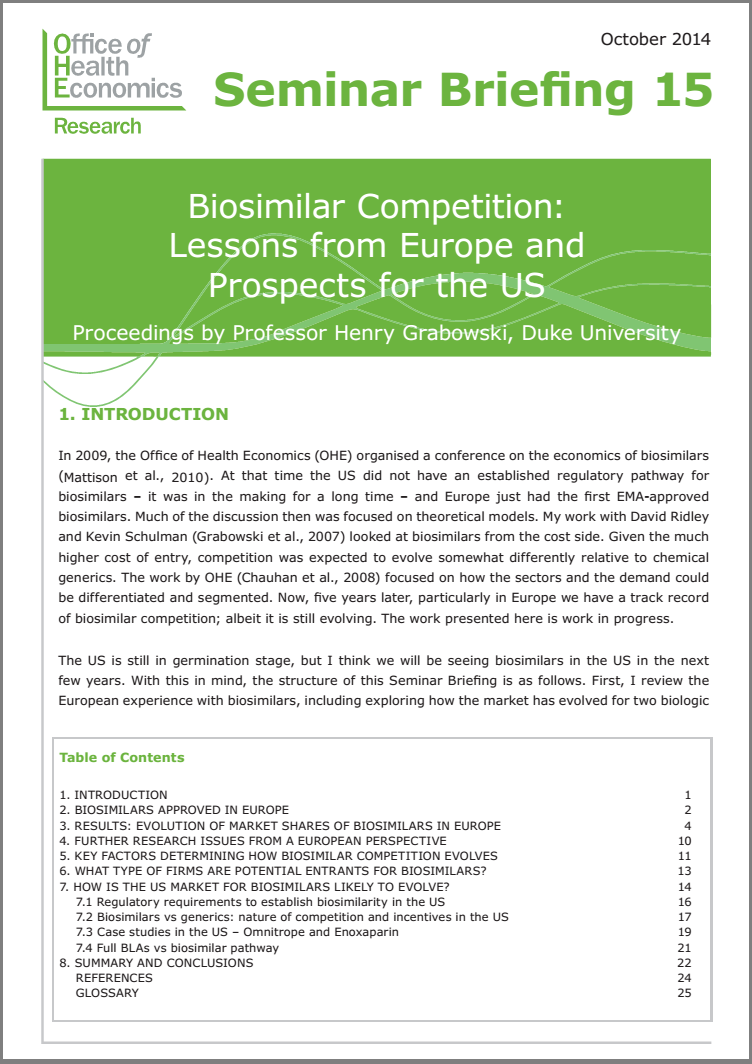Sign up to our newsletter Subscribe
Biosimilar Competition: Lessons from Europe and Prospects for the US

Sign up to our newsletter Subscribe
Over the past few years serious efforts have been made in Britain and elsewhere to achieve a more rational distribution of health care resources. It has often been assumed that an optimum supply of health care facilities could be achieved by the measurement of objective health care needs, and that, then, these resources could be fairly allocated to those requiring them. Unfortunately, well intentioned as these attempts have been, the reality is that the problem is much more complex. This paper sets out some of these difficulties and offers some tentative solutions to the intractable problem of health care demands running constantly ahead of the supply of health care resources. It has no intention of arguing against the basic concept that National Health Service care should be rationally planned. However, it will call into question some of the notions which have arisen in the course of the discussion of this planning process.
This paper is not primarily concerned with the availability of resources for health services. It is concerned instead with the use of these resources and how the problems of continuing shortages of health care arise and might be tackled. These are not local British problems. Difficulties in allocating scarce health care resources seem to occur worldwide. Even the richest nations, devoting relatively much higher proportions of their greater wealth to medical care, face the same sort of problems of shortage as those which occur in Britain. Clearly additional manpower and money are not the answer.
Furthermore, the paper does not attempt to deal with the ‘caring’ side of medicine, with all its own problems and shortages. Clearly there is unlimited scope for improving the conditions of the mentally handicapped, the chronic sick and the elderly, for example. However, this paper, instead, is concentrating primarily on the difficulties which exist in the provision of ‘curative’ services, such as surgery, radio-therapy, physiotherapy and of course pharmacology. It is with shortages in these areas that the discussion will be concerned.
An error has occurred, please try again later.
This website uses cookies so that we can provide you with the best user experience possible. Cookie information is stored in your browser and performs functions such as recognising you when you return to our website and helping our team to understand which sections of the website you find most interesting and useful.
Strictly Necessary Cookie should be enabled at all times so that we can save your preferences for cookie settings.
If you disable this cookie, we will not be able to save your preferences. This means that every time you visit this website you will need to enable or disable cookies again.
This website uses Google Analytics to collect anonymous information such as the number of visitors to the site, and the most popular pages.
Keeping this cookie enabled helps us to improve our website.
Please enable Strictly Necessary Cookies first so that we can save your preferences!